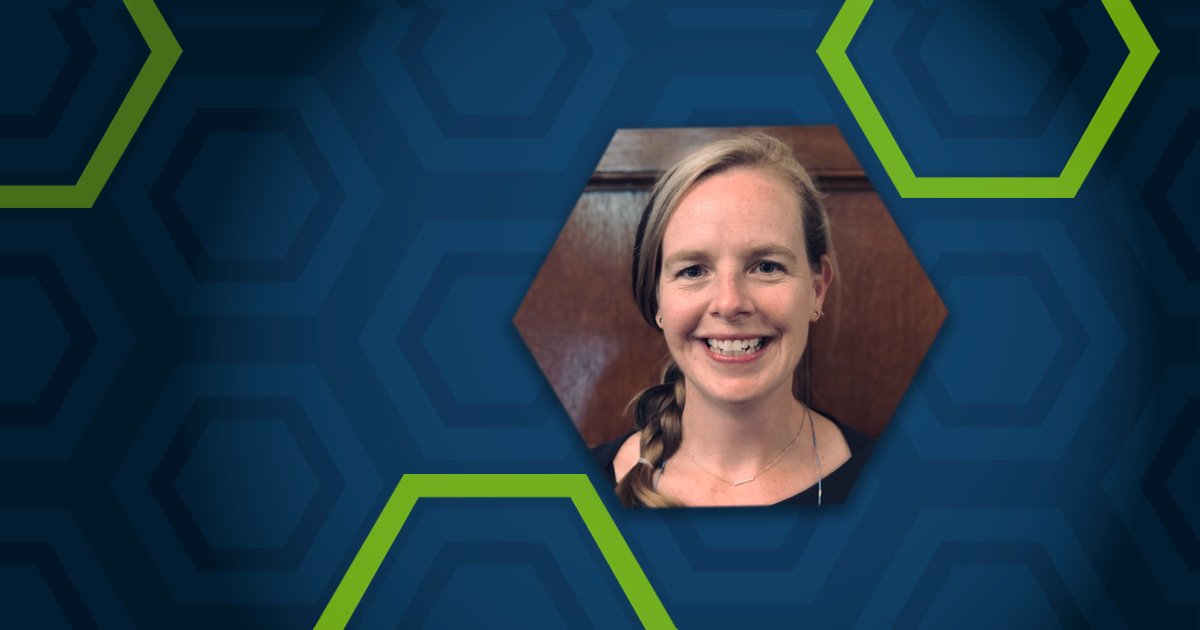We sat down with Erin Hamilton-Spence, M.D., IBCLC, neonatologist at Harris Methodist Hospital in Fort Worth, Texas. Dr. Hamilton-Spence has been with the practice for 12 years, where her focus is on providing family support on mother’s milk and donor milk and getting those used (and correctly) in the NICU. She also fills an administrative role as Assistant Medical Director of the NICU at Baylor Scott & White Andrews Women's Hospital and Chair of Critical Care at Cook Children's Medical Center.
Watch the video for the full interview or check out the highlights below!
How did you get into the field of medicine?
I guess you could say I was inspired by a woman. I did kind of know from the beginning that I wanted to be in medicine because it felt like the right marriage between science and humanities—that it’s a place where it’s impossible to be disconnected from humans if you’re paying attention but also driven by data, at least the best data we can get. So specifically, between college and medical school, I worked for a couple years. I was a medical assistant after college and worked in the office of a plastic surgeon. She told me that she had kids, and she was kind of an inspiration for me because I didn’t really know if that was something that could happen, and I really wanted a family. So, I had a dream one night that I asked her about all of this. I went in the next day, and we talked all about it, and she helped me see and understand more about how it could be done. That year I was applying to medical school, and I got in. So, I went into medicine really with the idea of having a family at the same time.
What do you think it means to be a woman in health care today?
It’s both the best and the worst. It is really important to be able to connect with your patients, and my role as a neonatologist is really about connecting with the parents at a time when they are incredibly vulnerable and really need our help to see the things that we see and communicate clearly what’s happening. It can be very powerful and reassuring to give good news and to give reassurance about what’s normal, especially for brand new parents. But it’s also really important to be able to connect with these families when they are suffering—when their babies are suffering—and to just hold space for them to understand what’s going on. So, it’s really about connection with the families and the patients. It’s also about sacrifice, not mine specifically but theirs, the things they give up to be here in the NICU with their children. My family—the sacrifices my kids and my husband have made over the years allow me to do this important connecting work. We focus on the time we spend and how we sacrifice away from our families, but our families do sacrifice, too. There are lots of little milestones that I missed that I'll never forget. My first child, I missed her first steps because I was at work, several birthdays that I've missed. But it does help me stay present when I'm home. So, I really do try to be present and alert and plugged into everything that’s going on at home when I'm there.
What are the positives for women?
Being in a field where people are giving birth all the time is something that is deeply connected to women. Being able to connect with moms who have had the end of their pregnancy not turn out the way that they wanted it to, I can empathize with that. My first child was born preterm. She didn’t spend a long time in the NICU, but it was devastating for me and was a big reason why I decided to come into the NICU and connect with parents and walk in their shoes while they were going through it.
What advice do you have for women?
I think that as much as any other profession, you have to be present with both your head and your heart. While you’re trying to understand and learn everything you can, you can’t forget that one of the fundamental needs of your patients is that connection, and that understanding is what they’re seeking. I’ve also been on the family side for adults in intensive care, and I've seen what it’s like to give birth to a preterm baby. Despite all of the medical training I've had and the nights I've spent in the hospital, really those things pale in comparison to the stress, both emotionally and physically, of having a family member in intensive care. And just understanding that they’re all having their worst day when they come to see us. It's easy to lose that connection when you’re just reading the numbers and talking to the staff; it’s something that you have to continuously remind yourself of. As a woman going into medicine, it’s the best job ever. It's hard, and it’s rewarding, and that’s why we do it.
Closing thoughts
Probably the most important thing about women considering going into medicine is that the early years are hard, but it does get better. You'll know you found your specialty when it feels like home, and it’s something that you can continue to do and learn from the rest of your life. It's really special and important to have that, and I feel really blessed that I found a specialty that nurtures me and allows me to understand more each day.
Interested in joining our team of talented neonatologists? Explore our career opportunities!

